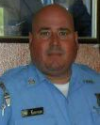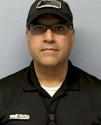The Army-Navy Game Started With Traditional 'Prisoner Exchange' — But Their Coats Told the Real StoryIt was a hell of a game and for the first time since 1996, Army gets the CmC Trophy!
Every year, just before kickoff of the Army-Navy Game, officials arrange a “prisoner exchange.”
The U.S. Military Academy (West Point) explains the tradition on its website:
For years West Point and the U.S. Naval Academy have swapped their cadets and midshipmen for a semester-long exchange to foster closer interservice relations between the sister academies.
But every year things get interesting around Army-Navy Week and exchange students become, in a sense, “prisoners” to be released to friendlier territory right before kickoff of the Army-Navy Game.
Those cadets temporarily attending the Naval Academy cross the field and return to the warm embrace of the Corps of Cadets in the bleachers and those middies at West Point take their seats among the Brigade of Midshipmen.
But as the teams exchanged their captives on the field Saturday, their coats sent a message to the fans:
Navy's “revenge” was a nod to Army's upset win in 2016 — the Black Knights managed to come back after blowing a 14-point lead, breaking a 14-game losing streak against Navy.
And Army's “repeat” — well, that goes without saying...
Police Work, Politics and World Affairs, Football and the ongoing search for great Scotch Whiskey!
Sunday, December 10, 2017
The Prisoner Exchange...
Yesterday I, like millions around the globe, watched the annual Army-Navy game from Philadelphia. But a ceremony reminded of the 1989 Army-Air Force game at Colorado Spring, CO. The Army and other branch schools have exchange students each semester, and prior to the arrival of the teams, the "prisoners" meet a mid-field and rejoin their schools to cheer on their team. Long time friend and fellow blogger Darren Miller at RotLC explained the ceremony to me. Unfortunately AFA kicked WP's ass that day...but Army won this year, and if they beat Navy, they get the Commander-n-Chief's Trophy. And you gotta love the signs on the back of their jackets:
Germany rising. Should we be concerned?
There is an old story about the founding of NATO. NATO was founded to "Keep the Americans in, the Russians out, and the Germans down." Understandable, seeing Germany was instrumental in the First World War and arguable the cause the of Second. There was legitimate unease, if you will, when Germany unified in 1990, but it was become an economic and political powerhouse of Europe. Now there is a question of if Germany wants to become more assertive in European affairs, militarily.
In a recent article in Foreign Policy, there review this interesting change in German military orientation.
NATO's commander has always been an American, while the NATO Secretary General has always been an European. While there is no statutory requirement for this, this has been tradition. But Germany, the Czech Republic and Romania are working on joint command. France tried that, alone, in the 1960s and that didn't work out well. We'll see how this works out now.
In a recent article in Foreign Policy, there review this interesting change in German military orientation.
Germany Is Quietly Building a European Army Under Its Command
Berlin is using a bland name to obscure a dramatic shift in its approach to defense: integrating brigades from smaller countries into the Bundeswehr.
Every few years, the idea of an EU army finds its way back into the news, causing a kerfuffle. The concept is both fantasy and bogeyman: For every federalist in Brussels who thinks a common defense force is what Europe needs to boost its standing in the world, there are those in London and elsewhere who recoil at the notion of a potential NATO rival.
But this year, far from the headlines, Germany and two of its European allies, the Czech Republic and Romania, quietly took a radical step down a path toward something that looks like an EU army while avoiding the messy politics associated with it: They announced the integration of their armed forces.
Romania’s entire military won’t join the Bundeswehr, nor will the Czech armed forces become a mere German subdivision. But in the next several months each country will integrate one brigade into the German armed forces: Romania’s 81st Mechanized Brigade will join the Bundeswehr’s Rapid Response Forces Division, while the Czech 4th Rapid Deployment Brigade, which has served in Afghanistan and Kosovo and is considered the Czech Army’s spearhead force, will become part of the Germans’ 10th Armored Division. In doing so, they’ll follow in the footsteps of two Dutch brigades, one of which has already joined the Bundeswehr’s Rapid Response Forces Division and another that has been integrated into the Bundeswehr’s 1st Armored Division. According to Carlo Masala, a professor of international politics at the University of the Bundeswehr in Munich, “The German government is showing that it’s willing to proceed with European military integration” — even if others on the continent aren’t yet.
European Commission President Jean-Claude Juncker has repeatedly floated the idea of an EU army, only to be met with either ridicule or awkward silence. That remains the case even as the U.K., a perennial foe of the idea, is on its way out of the union. There’s little agreement among remaining member states over what exactly such a force would look like and which capabilities national armed forces would give up as a result. And so progress has been slow going. This March, the European Union created a joint military headquarters — but it’s only in charge of training missions in Somalia, Mali, and the Central African Republic and has a meager staff of 30. Other multinational concepts have been designed, such as the Nordic Battle Group, a small 2,400-troop rapid reaction force formed by the Baltic states and several Nordic countries and the Netherlands, and Britain’s Joint Expeditionary Force, a “mini-NATO” whose members include the Baltic states, Sweden, and Finland. But in the absence of suitable deployment opportunities, such operations-based teams may as well not exist.
But under the bland label of the Framework Nations Concept, Germany has been at work on something far more ambitious — the creation of what is essentially a Bundeswehr-led network of European miniarmies. “The initiative came out of the weakness of the Bundeswehr,” said Justyna Gotkowska, a Northern Europe security analyst at Poland’s Centre for Eastern Studies think tank. “The Germans realized that the Bundeswehr needed to fill gaps in its land forces … in order to gain political and military influence within NATO.” An assist from junior partners may be Germany’s best shot at bulking out its military quickly — and German-led miniarmies may be Europe’s most realistic option if it’s to get serious about joint security. “It’s an attempt to prevent joint European security from completely failing,” Masala said.
“Gaps” in the Bundeswehr is an understatement. In 1989, the West German government spent 2.7 percent of GDP on defense, but by 2000 spending had dropped to 1.4 percent, where it remained for years. Indeed, between 2013 and 2016 defense spending was stuck at 1.2 percent — far from NATO’s 2 percent benchmark. In a 2014 report to the Bundestag, the German parliament, the Bundeswehr’s inspectors-general presented a woeful picture: Most of the Navy’s helicopters were not working, and of the Army’s 64 helicopters, only 18 were usable. And while the Cold War Bundeswehr had consisted of 370,000 troops, by last summer it was only 176,015 men and women strong.
Since then the Bundeswehr has grown to more than 178,000 active-duty troops; last year the government increased funding by 4.2 percent, and this year defense spending will grow by 8 percent. But Germany still lags far behind France and the U.K. as a military power. And boosting defense spending is not uncontroversial in Germany, which is wary of its history as a military power. Foreign Minister Sigmar Gabriel recently said it was “completely unrealistic” to think that Germany would reach NATO’s defense spending benchmark of 2 percent of GDP — even though nearly all of Germany’s allies, from smaller European countries to the United States, are urging it to play a larger military role in the world.
Germany may not yet have the political will to expand its military forces on the scale that many are hoping for — but what it has had since 2013 is the Framework Nations Concept. For Germany, the idea is to share its resources with smaller countries in exchange for the use of their troops. For these smaller countries, the initiative is a way of getting Germany more involved in European security while sidestepping the tricky politics of Germany military expansion..."
NATO's commander has always been an American, while the NATO Secretary General has always been an European. While there is no statutory requirement for this, this has been tradition. But Germany, the Czech Republic and Romania are working on joint command. France tried that, alone, in the 1960s and that didn't work out well. We'll see how this works out now.
Labels:
Europe,
European Union,
Germany,
NATO,
Russia
Friday, December 8, 2017
Officer Down

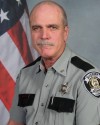
Deputy Sheriff James Martin WallaceRest in Peace Bro…We Got The Watch
Richmond County Sheriff's Office, Georgia
End of Watch: Thursday, November 2, 2017
Age: 61
Tour: 7 years
Deputy Sheriff James Wallace suffered a fatal heart attack while participating in the department's annual physical fitness assessment at the Wilson Family YMCA on Wheeler Road.
Other deputies on scene immediately started CPR. He was transported to Doctor's Hospital where he passed away a short time later.
Deputy Wallace had served with the Richmond County Sheriff's Office for seven years.
Nemo me impune lacessit
Day is done, Gone the sun, From the lake, From the hills, From the sky. All is well, Safely rest, God is nigh.
Wednesday, December 6, 2017
Officer Down


Trooper Daniel Keith Rebman, Jr.Rest in Peace Bro…We Got The Watch
South Carolina Highway Patrol, South Carolina
End of Watch: Tuesday, October 24, 2017
Age: 31
Tour: 1 year, 1 month
Badge # T716
Trooper Daniel Rebman was killed in a vehicle crash when his patrol car was struck by another vehicle on I-385, near Bridges Road, in Greenville County.
He was parked on the shoulder of I-385 when a pickup truck left the roadway and struck his patrol car from behind at approximately 12:20 am. Trooper Rebman was transported to a local hospital where he died later in the afternoon.
Trooper Rebman had served with the South Carolina Highway Patrol for 13 months and was assigned to Post C. He was also a dispatcher in Greenville County for four years. Trooper Rebman is survived by his wife, three children, parents, and sister.
Nemo me impune lacessit
Day is done, Gone the sun, From the lake, From the hills, From the sky. All is well, Safely rest, God is nigh.
Monday, December 4, 2017
Officer Down
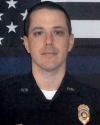
Police Officer Justin A. LeoRest in Peace Bro…We Got The Watch
Girard Police Department, Ohio
End of Watch: Saturday, October 21, 2017
Age: 31
Tour: 5 years
Badge # 324
Police Officer Justin Leo was shot and killed while responding to a domestic disturbance call at 408 Indiana Avenue at approximately 10:15 pm.
The subject was intoxicated and was known to have firearms inside the home. Responding officers made contact with the subject, who produced a handgun and shot Officer Leo. Another officer returned fire and killed the subject.
Officer Leo was transported to a local hospital where he succumbed to his wounds.
Officer Leo served with the Girard Police Department for five years. He worked for the Mahoning County Sheriff's Department and the Vienna Police Department prior to joining the Girard Police Department in 2012. Officer Leo is survived by his parents, aunt, and extended family.
Nemo me impune lacessit
Day is done, Gone the sun, From the lake, From the hills, From the sky. All is well, Safely rest, God is nigh.
Friday, December 1, 2017
Officer Down


Trooper Daniel Keith Rebman, Jr.Rest in Peace Bro…We Got The Watch
South Carolina Highway Patrol, South Carolina
End of Watch: Tuesday, October 24, 2017
Age: 31
Tour: 1 year, 1 month
Badge # T716
Trooper Daniel Rebman was killed in a vehicle crash when his patrol car was struck by another vehicle on I-385, near Bridges Road, in Greenville County.
He was parked on the shoulder of I-385 when a pickup truck left the roadway and struck his patrol car from behind at approximately 12:20 am. Trooper Rebman was transported to a local hospital where he died later in the afternoon.
Trooper Rebman had served with the South Carolina Highway Patrol for 13 months and was assigned to Post C. He was also a dispatcher in Greenville County for four years. Trooper Rebman is survived by his wife, three children, parents, and sister.
Nemo me impune lacessit
Day is done, Gone the sun, From the lake, From the hills, From the sky. All is well, Safely rest, God is nigh.
Wednesday, November 29, 2017
Officer Down

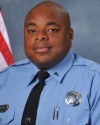
Police Officer Marcus Anthony McNeilRest in Peace Bro…We Got The Watch
New Orleans Police Department, Louisiana
End of Watch: Friday, October 13, 2017
Age: 29
Tour: 3 years
Badge # 741
Cause: Gunfire
Police Officer Marcus McNeil was shot and killed while investigating a suspicious person near the intersection of Tara Lane and Lake Forest Boulevard shortly after midnight.
He and three other officers had just exited their vehicles to investigate. Officer McNeil located the man nearby and attempted to speak to him. A struggle ensued during which Officer McNeil attempted to deploy his taser without the desired effect. The man then opened fire on Officer McNeil, killing him.
Responding officers shot and wounded the man, who fled to a nearby apartment complex. He was taken into custody after remaining barricaded for several hours. He was charged with first degree murder and several firearms and felony narcotics offenses.
Officer McNeil had served with the New Orleans Police Department for three years. He is survived by his wife and two young children.
Nemo me impune lacessit
Day is done, Gone the sun, From the lake, From the hills, From the sky. All is well, Safely rest, God is nigh.
Church threat in Houston....
I don't know if I should call this good or bad news. A few weeks after a nutcase murdered 26 people in a church in Sutherland Springs TX, and now we have this moron, Keanu Randolph, threatening a deacon and the man's daughter. But the Houston Police Officer's Union is offering training for the churches
HPD teaching church members how to protect themselves | abc13.com
The Houston Police Department wants to make churches a safe place for members to worship and gather. Today they're hosting a seminar on safety and security for churches.
The training comes just two days after a man walked into a Houston church and threatened to kill a church deacon, the deacon's toddler daughter and to rape and kill his wife...
...Today's seminar will include the Houston Police Department Police and Clergy Alliance (PACA) and members of the Houston Area Pastors Council (HAPC).
The training is going to focus on two things: How to survive an active shooter and parking lot security. It will be led by officers, and is open to the public...
Another disgrace of the incident in Houston. The suspect originally got a bail of $7,000. Which means a felon suspect can make bail on 700 dollars. Fortunately his bail for raiser to one million and I'm pretty sure this punk would have issues coming up with $1,000, much less $100,000.
Being Net Neutral means being net slow....
I’ve been in a Facebook
debate over so-called “Net Neutrality,” where the FCC, using the 1934 Telecommunications Act (back when computers were the size of 18 wheelers), declared they had the statutory authority to regulate Internet service providers (ISPs). I believe this has been challenged in court, but fortunately the Trump administration is moving to end that lasted power grab by he Obama regime.
Looking through Facebook and found a good look at what happens when the federal government plan ISP service.
Lesson learned, keep the federal government out of the market.
debate over so-called “Net Neutrality,” where the FCC, using the 1934 Telecommunications Act (back when computers were the size of 18 wheelers), declared they had the statutory authority to regulate Internet service providers (ISPs). I believe this has been challenged in court, but fortunately the Trump administration is moving to end that lasted power grab by he Obama regime.
Looking through Facebook and found a good look at what happens when the federal government plan ISP service.
Americans Taxed $400 Billion For Fiber Optic Internet That Doesn’t ExistI’ll turn 53 in January. I have lived through he Oil Crisis on the 1970s, the breakup of Ma Bell in the 80s, the seizure of the health insurance market in 2010. Reagan deregulated oil, and now were are independent in oil production. After some initial growing pains we have practically free telecommunications (Really, when is the last time you paid for a call from Houston to Dallas, or Denver?). But with the federal government in charge of health insurance, choice, and quality have gone down, and cost have skyrocketed.
America's rate of fiber optic penetration is half the OECD average
Americans Paid $400 Billion in Taxes & Internet Surcharges for Fiber Optic Upgrades that Never Came
South Korea is the poster child for high-speed internet: its fixed-connection and mobile download speeds are consistently among the fastest in the world, and its capital city, Seoul, is completely saturated with Wi-Fi. How did they do it?
Being densely populated helped: it’s easier and cheaper to wire-up crowded cities than empty countrysides. But the key element was the government’s pro-broadband policies. Not only did they open up the market for competition among internet service providers, but they also invested in hard infrastructure.
Back in 2011 the New York Times reported that the South Korean planned investments of $24.6 billion in digital infrastructure. It paid off: South Korea’s internet remains among the world’s fastest, according to testing done by Speedtest—and this is in spite of massive recent gains and investments made by other countries.
Meanwhile, America’s internet connections are slow. This summer Forbes Magazine reported:
The US ranks 9th in the world in fixed broadband speed at 70.75 Mbps average download and 27.64 Mbps average upload. Ranking in the top ten is good but the US’s average download speed is less than half top-ranked Singapore’s 154.38 Mbps. Both upload and download speeds increased steadily from July 2016 to July 2017 and the US’s rank increased from 11 to 9....
The picture for the US is not nearly as good when you look at mobile internet speed where the US ranks 46th, just ahead of Albania and behind Oman. Average download speed in the US is 23.05 Mbps which is less than half the average download speeds in Norway, the Netherlands and Hungary. Average upload speed in the US is 8.26 Mbps. While mobile download speed increased by almost 20% from July 2016 to July 2017, the US’s world ranking fell from 44th to 46th. Not good.
Since then America’s fallen down to 11th place in terms of fixed connection download speed, and 47th in terms of mobile download speed. Basically, America’s internet is slow, and it’s getting relatively slower. This will have big economic consequences down the road as the world grows increasingly digital.
But that’s not the real story here. More important is America’s failure to keep pace with countries like South Korea despite absolutely astronomical investments in broadband technology.
According to a fairly recent book (2015) called The Book of Broken Promises, the American people have been charged some $400 billion by telecom companies (at the instance of government) for fiber optic upgrades that have not materialized. The author writes:
By the end of 2014, America will have been charged about $400 billion by the local phone incumbents, Verizon, AT&T and CenturyLink, for a fiber optic future that never showed up. And though it varies by state, counting the taxes, fees and surcharges that you have paid every month (many of these fees are actually revenues to the company or taxes on the company that you paid), it comes to about $4000-$5000.00 per household from 1992-2014, and that’s the low number.
You were also charged about nine times to wire the schools and libraries via state and federal plans designed to help the phone and cable companies...
Lesson learned, keep the federal government out of the market.
Monday, November 27, 2017
Officer Down
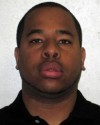 |
| Officer Smith |
 |
| Officer Shannon |
 |
| Manager Darden |
Correctional Officer Justin James SmithRest in Peace…We Got The Watch
North Carolina Department of Public Safety - Division of Prisons, North Carolina
End of Watch: Thursday, October 12, 2017
Age: 35
Tour: 5 years
Cause: Assault
Weapon: Blunt object
Offender: Charged with murder
Correction Enterprises Manager Veronica Darden
North Carolina Department of Public Safety - Division of Prisons, North Carolina
End of Watch: Thursday, October 12, 2017
Age: 50
Tour: 10 years
Weapon: Blunt object
Offender: Charged with murder
Correctional Officer Wendy Shannon
North Carolina Department of Public Safety - Division of Prisons, North Carolina
End of Watch: Monday, October 30, 2017
Age: 49
Tour: 4 years
Cause: Assault
Incident Date: 10/12/2017
Weapon: Blunt object
Offender: Charged with murder
Correctional Officer Wendy Shannon, Correction Enterprises Manager Veronica Darden, and Correctional Officer Justin Smith were killed during an escape attempt from the Pasquotank Correctional Institute at approximately 3:00 pm.
On October 12th, 2017, several inmates ignited a fire inside the prison's Specialty Sewing Plant as a diversion. The inmates then attacked responding corrections officers with hammers and scissors obtained in the sewing plant. Prison personnel and responding fire department crews were able to bring the fire under control and prevent the escape.
Officer Shannon was transported to Sentara Norfolk General Hospital where she passed away on October 30th, 2017.
Four inmates were charged with first degree murder as a result of the incident.
Officer Smith had served with the North Carolina Division of Prisons for five years.
Correction Manager Darden had served with the North Carolina Division of Prisons for 10 years.
Officer Shannon had served with the North Carolina Division of Prisons for four years.
Nemo me impune lacessit
Day is done, Gone the sun, From the lake, From the hills, From the sky. All is well, Safely rest, God is nigh.
Sunday, November 26, 2017
An ordinary American..
In extraordinary times...
There is an old saying that everyone is famous for fifteen minutes. My fifteen minutes was getting on TV after camping out with some friends for the premier of Return of the Jedi (young and stupid), but this gentleman got a bit more than a quarter of an hour.
Retired Dallas Police detective Jim Leavelle was stationed at Pearl Harbor on December 7, 1941. After living through "...a date which will live in infamy...", he moved on to the Dallas Police Department in 1950. And his image is engraved in history. He was handcuffed to suspected presidential assassin Lee Harvey Oswald when Jack Ruby murdered him.
From this month's American Legion Magazine, an interview with veteran and retired police detective Leavelle, 97 years young.
Well done sir, well done.
There is an old saying that everyone is famous for fifteen minutes. My fifteen minutes was getting on TV after camping out with some friends for the premier of Return of the Jedi (young and stupid), but this gentleman got a bit more than a quarter of an hour.
Retired Dallas Police detective Jim Leavelle was stationed at Pearl Harbor on December 7, 1941. After living through "...a date which will live in infamy...", he moved on to the Dallas Police Department in 1950. And his image is engraved in history. He was handcuffed to suspected presidential assassin Lee Harvey Oswald when Jack Ruby murdered him.
From this month's American Legion Magazine, an interview with veteran and retired police detective Leavelle, 97 years young.
Two Bouts With Infamy
By John Raughter Nov 20, 2017
Jim Leavelle just may be indestructible. The 97-year-old member of American Legion Post 23 in Garland, Texas, is a living, breathing participant in two of the 20th century’s most significant events.
A sailor serving aboard USS Whitney, he was at Pearl Harbor on Dec. 7, 1941. Twenty-two years later, on Nov. 24, 1963, Leavelle witnessed the slaying of John F. Kennedy assassination suspect Lee Harvey Oswald.
How close was he? He was handcuffed to Oswald at the time.
“Those weren’t even my closest calls,” Leavelle chuckles, noting times he faced gunfire during his 25 years with the Dallas Police Department. But none compares to the sheer firepower he saw as a 21-year-old ship’s storekeeper in Hawaii.
“I was on deck and a boatswain’s mate was standing beside me and we were looking across the harbor,” he recalls. “He saw the first plane coming in. I didn’t notice it. He said, ‘Look at that plane. It’s got a red ball on the wing.’ He said they must have been using it for practice. But that was the plane that was sent first. Then he dropped his bombs and went back.”
Whitney was spared as a target due to its location. About a mile and a half from Ford Island, the destroyer was not at the center of the large fleet that bore the brunt. “The Japanese would come over Ford Island and make a turn to the right because that’s where most of the action was, but we were on the other side,” Leavelle says. “One came our direction. I don’t know how he got lost. He fired a few rounds, I guess at several of us, as it passed over.”
Still, Whitney’s crew saw much of the attack. “We did have a good view of everything. A mile and a half at sea looks like 150 yards on the ground because you can see a lot further on the open sea.”
Though his memories of Pearl Harbor are troubling, Leavelle understands the importance of giving an eyewitness account.
“We saw some destroyers going out with big fires on the back end of them where they had got hit,” he says. “The battleship Nevada was trying to get out of there, burning on each end, front and back, and you could see the firemen fighting it, and they had their guns going. They made a lot of wartime movies later on, but none could match what the scene looked like to us.”
Leavelle manned his battle station, although it was not an effective one. “I was a loader on a 5-inch gun,” he says. “It would shoot 40 or 50 miles, so if you fired it could kill someone in Honolulu, but it was useless here.”
While Leavelle did incur an injury during his time in the Navy, it happened prior to Dec. 7, 1941. A wake from a rough Pacific storm struck Whitney and threw him over the rail of a stairwell onto a steel floor, shattering his knees. “After the attack, the doctors would only assign me to shore duty,” he says. “One doctor said he would never approve sea duty because he was afraid my knee wouldn’t hold up, and I couldn’t man a battle station. Since they weren’t going to send me to sea, I got out.”
After a few jobs in the civilian workforce, Leavelle joined the Dallas Police Department in 1950. “I thought my previous injuries might hinder me, but I passed the physical test without any problems, and the rest is history.”
Major history, actually. Wearing a light suit and a cowboy hat, Leavelle is a prominent figure in the Pulitzer Prize-winning photograph of Lee Harvey Oswald grimacing in pain the moment he is shot by Dallas nightclub owner Jack Ruby. Leavelle, by this time a homicide detective, had earlier interrogated Oswald for the slaying of Dallas police officer J.D. Tippit, who was killed about 45 minutes after President John F. Kennedy.
“I started talking to him,” Leavelle says of the interrogation. “He was real polite. He wasn’t arguing or anything. Of course he wasn’t answering them truthful. He answered one question that I snapped on real quick. When I asked him about shooting the police officer, he said, ‘I hadn’t shot anybody!’ Well, that’s not the answer to that question.”
His interrogation was interrupted by a police captain who asked Oswald where he worked. When Oswald answered that he worked at the School Book Depository, Leavelle lost his prisoner and Oswald became the prime suspect of a much bigger murder case.
Media quickly descended on the Dallas police station. Moving Oswald from station offices to jail became a logistical challenge as reporters crowded the halls. During a walk-through prior to the Ruby encounter, Leavelle felt something move near his legs.
“There was a reporter with a camera trying to take a picture,” he says. “I gave him the backside of my foot and tried to send him about 10 feet down the hallway. I didn’t have any trouble with him after that.”
The trouble began at 11:21 a.m. Nov. 24. Moments earlier, Leavelle had prepared Oswald for another walk from the station offices. “I said, ‘Lee, if anybody shoots at you, I hope they’re as good a shot as you are,’ because he had a marksmanship rating in the Marines. And he started laughing at that. But that’s another mistake. I complimented him and he liked the compliment about his good shooting. That’s what he wanted people to think about him – to think good things about him.”
When they walked into the basement, Leavelle instantly recognized Ruby. Years earlier as a beat officer, Leavelle had been responsible for ensuring the city’s nightclubs closed by midnight in accordance with Texas law. Leavelle describes Ruby as one of the more pleasant club owners he dealt with. “If I ever asked him anything, he’d tell me, and he always told me the truth,” he says.
This encounter was different.
“When I turned the corner and was facing Ruby, I recognized him, but he had that pistol in his left hand pressed against his left leg,” Leavelle says. “But all those reporters and police officers weren’t looking down. They were looking up here (face-level) when I came in, to see what he (Oswald) looked like. But (Ruby) switched that pistol over to his right hand, and I knew immediately what was going to happen. So I tried to grab Ruby. I got my hand on his shoulder, not good enough to do much with him, and I was pulling Oswald behind me at the same time.”
Ruby got his shot off into Oswald, but Leavelle credits his police partner L.C. Graves with saving his own life by grabbing the pistol. “L.C. had the cylinder of that pistol and I knew he wasn’t going to turn it loose, and I knew that nobody could pull that trigger as long as L.C. held that,” he says. “But he already moved over enough. Ruby was still working his finger on his trigger trying to get off a shot. Had he gotten it off, I would have caught it here (the chest). If my partner hadn’t grabbed that cylinder, I wouldn’t be here talking to you today.”
Oswald lost consciousness and died that day.
Leavelle doesn’t buy into conspiracy theories surrounding the Kennedy assassination. “We didn’t leave anything out,” he says. “We had run everything down to the last inch.”
So why did Ruby kill Oswald? “Same reason Oswald did it,” Leavelle says. “He wanted recognition. He wanted to be thought something of.”
When it came time to transfer Ruby to jail, the suspect was understandably nervous. “He was wanting to borrow my hat and get my jacket and camouflage himself. I said, ‘Jack, nobody’s going to shoot you. In the first place, you ain’t worth killing.’ He said, ‘Well, all I wanted to do was be a hero, but it looks like I just messed things up.’ I said, ‘You can say that again.’”
Leavelle is a beloved figure by the Dallas Police Department, which named its Detective of the Year Award after him. Although Pearl Harbor led the United States into the bloodiest war of the 20th century, Leavelle says it’s the JFK assassination he is asked about most often. “So many people were too small back during the Pearl Harbor days,” he says. “I (also) think it’s because the president they saw and were closer to.”
Born just a year after The American Legion’s founding, the legendary lawman has witnessed a lot of history. As far as Kennedy goes, Leavelle is neither a fan nor a critic. “I’m like everybody else,” he says. “I don’t think I voted for him, but I don’t think I disliked him. I don’t know that I ever hated any politician. If you try to hate somebody, you’re just wasting your time.”
Well done sir, well done.
Friday, November 24, 2017
Officer Down


Police Officer Floyd East, Jr.Rest in Peace Bro…We Got The Watch
Texas Tech University Police Department, Texas
End of Watch: Monday, October 9, 2017
Age: 48
Tour: 5 months
Badge # 635
Police Officer Floyd East was shot and killed inside of the Texas Tech University Police Department while questioning a narcotics suspect at approximately 8:30 pm.
Officers were conducting a welfare check on a freshman student after receiving reports from his family that he was suicidal and possibly possessed a weapon. Responding officers discovered narcotics and paraphernalia inside of his room as they checked on his wellbeing. The subject was taken into custody and transported to the police station for further investigation.
The subject, who was not handcuffed, shot Officer East in the back of the head with a .45 caliber pistol as he completed paperwork. The man then stole Officer East's bodycam and fled the police station. He was arrested a short time later and charged with capital murder.
Officer East had served with the Texas Tech University Police Department for five months. He is survived by his wife and two daughters.
Nemo me impune lacessit
Day is done, Gone the sun, From the lake, From the hills, From the sky. All is well, Safely rest, God is nigh.
The New York Times shows its ignorance of basic economics, again.
I subscribe to a group on Facebook called "Fans of the Best of the Web," and a few days ago an author (I regret I deleted his name, I wanted to give credit...sorry.) had a link to a New York Times iditorial (At least they didn't put it on the front page as news, give them credit.), wondering why so many store fronts are empty right now. And they go forth with one leftest idea after another to get the stores filled, but "...much like the neutered dog, they just don't get it!" (From the late great Sam Kinison.) It would be funny, if it were not the fact that many powerful people read this rag and think it means something.
From last week's Manhattan tabloid, with comments.
No, it's not greed, but the market that drives rents. You have a company that will pay $5,000 a month for your storefront, or $20, 000 a month, who do you go with? Or put another way NYT, if someone is ready to purchase your paper for a quarter (Much more than it's worth,) or another buyer willing to pay a buck, who do you sell it to. We know who you will sell to, and in your mind that's not greed. That's different.
This may shock you, but that is exactly the wrong thing to do. You make it too expensive to do business in your town, guess what? The business goes under. At some point the owner may even say, "Screw it, I'm out of here, I'll sell at a loss, but there is no way I can break even, much less make a profit. At least I'll stop the hemorrhaging..."
Forbes magazine caught on this a few days ago and made an excellent point. And I've made this point countless times to people who think they can artificially (i.e. without the influence of the market) raised wages without negative impact:
I would say there may be some hope, but not right now. In a city that had as a legitimate canidate for mayor a petafile (Anthony Weiner), a communist (de Blasio) and another communist (Christine Quinn), and no Giuliani on the horizon to undo the damage of 20 years of democratic rule, it's gonna be bad. God knows they would be expecting a bail out from DC if Mrs. Bill Clinton had won last fall. I still think they will try and get the nation's taxpayers to bail them out soon enough. And I think it's time to remember the wisdom of former President Gerald Ford. "Drop dead!"
From last week's Manhattan tabloid, with comments.
Why Is New York Full of Empty Stores?
By THE EDITORIAL BOARD NOV. 19, 2017
In his classic 1949 essay “Here Is New York,” E. B. White described the city as “a composite of tens of thousands of tiny neighborhood units,” each “virtually self-sufficient” with shops that met most residents’ basic needs, from groceries to shoes, from newspapers to haircuts. Every neighborhood was so complete, White wrote, “that many a New Yorker spends a lifetime within the confines of an area smaller than a country village.”
Nearly seven decades later, that observation is still largely valid, but it is being sorely tested by a scourge of store closings that afflicts one section of the city after another, notably in Manhattan and parts of Brooklyn. This plague has been underway for several years, but its familiarity does not diminish the damage inflicted on the economic and the psychic well-being of neighborhoods. One by one, cherished local shops are disappearing, replaced by national chains or, worse, nothing at all. To borrow from Tim Wu, a Columbia University law professor who has examined the issue, “Blight extracts a social cost.”
Thus far, coming to grips with the problem has not been a de Blasio administration priority. But it should be high on any to-do list in its second term.
“For lease” signs all but define every block in some neighborhoods, rich as well as poor. Take the Upper West Side. Its City Council member, Helen Rosenthal, reports that her staff recently surveyed shops along Broadway and Amsterdam and Columbus Avenues, and on some side streets. Of 1,332 storefronts, 161, or 12 percent, were unoccupied. The situation, Ms. Rosenthal correctly says, is a threat to the area’s character, its “sense of community” and even its residents’ sense of safety. While a comparable citywide census of empty storefronts is needed, the Upper West Side is obviously not alone.
On one level, there’s just so much the city can do. Online shopping is here to stay, and it takes an inevitable toll on brick-and-mortar stores.
But landlords can be blamed mightily for this blight — the greedy among them who raise rents to stratospheric levels, figuring that some deep-pocketed company will pay top dollar for the space. Speculative behavior has led to boom-or-bust cycles, as on Bleecker Street in Greenwich Village. It was fancy boutique heaven for a while. But how many $400 T-shirts does even the wealthiest New Yorker need? Boutique heaven turned into vacancy hell...
No, it's not greed, but the market that drives rents. You have a company that will pay $5,000 a month for your storefront, or $20, 000 a month, who do you go with? Or put another way NYT, if someone is ready to purchase your paper for a quarter (Much more than it's worth,) or another buyer willing to pay a buck, who do you sell it to. We know who you will sell to, and in your mind that's not greed. That's different.
"...What kind of lifeline might be thrown to imperiled local businesses and their neighborhoods? One idea floated among lawmakers is to restructure the commercial rent tax, a 54-year-old levy that principally affects business tenants in Manhattan below 96th Street. If their annual rent bill exceeds $250,000, they must pay the city 3.9 percent of it. This is on top of any real estate taxes they may also owe. It’s a burden. One proposal from some officials is to raise the threshold to $500,000 for the rent tax to kick in.
Another idea that merits consideration — and is likely to need Albany’s approval — is some sort of a “vacancy tax” on those landlords who leave storefronts unoccupied for years, hoping against hope that Sephora or Marc Jacobs or whatever will move in someday. Details would, of course, have to be worked out, including how steep a tax after how long a period of vacancy.
The core point is that all these dead spaces hurt, and neighborhoods have a right to protect themselves. “The city is losing what makes it appealing, what makes it New York,” Professor Wu said. Amen to that. The last thing anyone wants is a sequel to the E. B. White essay that might well be titled, “There Goes New York...”
This may shock you, but that is exactly the wrong thing to do. You make it too expensive to do business in your town, guess what? The business goes under. At some point the owner may even say, "Screw it, I'm out of here, I'll sell at a loss, but there is no way I can break even, much less make a profit. At least I'll stop the hemorrhaging..."
Forbes magazine caught on this a few days ago and made an excellent point. And I've made this point countless times to people who think they can artificially (i.e. without the influence of the market) raised wages without negative impact:
"...What happened? For starters, the state of New York embarked on an unprecedented experiment in raising the minimum wage. At the start of 2016, the city's tipped minimum wage increased by 50 percent, and the minimum wage for fast food workers jumped by nearly 17 percent to $10.50. At the start of 2017, the wage floor rose higher to $12 an hour, and the minimum wage for all businesses in the city rose by 22 percent to $11 an hour..."
I would say there may be some hope, but not right now. In a city that had as a legitimate canidate for mayor a petafile (Anthony Weiner), a communist (de Blasio) and another communist (Christine Quinn), and no Giuliani on the horizon to undo the damage of 20 years of democratic rule, it's gonna be bad. God knows they would be expecting a bail out from DC if Mrs. Bill Clinton had won last fall. I still think they will try and get the nation's taxpayers to bail them out soon enough. And I think it's time to remember the wisdom of former President Gerald Ford. "Drop dead!"
Wednesday, November 22, 2017
Officer Down

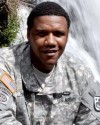
Police Officer Charleston V. HartfieldRest in Peace Bro…We Got The Watch
Las Vegas Metropolitan Police Department, Nevada
End of Watch: Sunday, October 1, 2017
Age: 34
Tour: 11 years
Badge # 9008
Police Officer Charles Hartfield was shot and killed while taking off duty action to rescue citizens during the active shooter incident at the Route 91 Harvest Festival.
Officer Hartfield was attending the concert, with his wife, when a gunman opened fire on the audience from the 32nd floor of the Mandalay Bay Hotel. Hundreds of citizens were struck by gunfire. Officer Hartfield immediately attempted to assist some of the casualties when he was fatally struck by one of the rounds.
The gunman committed suicide as members of the SWAT team made entry into the room he was barricaded in. Fifty-eight people were killed and over 500 were wounded during the incident.
Officer Hartfield was a U.S. Army veteran and had served with the Las Vegas Metropolitan Police Department for 11 years. He is survived by his wife and two children.
Nemo me impune lacessit
Day is done, Gone the sun, From the lake, From the hills, From the sky. All is well, Safely rest, God is nigh.
Don’t see nothing....
You were just wanting quick and easy OT before the holidays...or you’re about to OD or lunch....
Have a Happy Thanksgiving, and be safe out there fellow cops!
Have a Happy Thanksgiving, and be safe out there fellow cops!
Monday, November 20, 2017
Officer Down


Corporal Michael Paul MiddlebrookRest in Peace Bro…We Got The Watch
Lafayette Police Department, Louisiana
End of Watch: Sunday, October 1, 2017
Age: 44
Tour: 9 years
Badge # 13780
Corporal Michael Middlebrook was shot and killed while responding to a shooting at a convenience store, near the intersection of Moss Street and Van Buren Street, at approximately 10:00 pm.
The call was originally dispatched as a person with a gun but was upgraded to a shooting. As Corporal Middlebrook arrived on scene a male subject opened fire on him, engaging him in a shootout. Corporal Middlebrook was fatally wounded during the exchange.
The man fled the scene but was later arrested and charged with first degree murder and three counts of attempted first degree murder.
Corporal Middlebrook had served with the Lafayette Police Department for nine years and served with the U.S. Army as a military policeman. He was studying to become a pastor. He is survived by his wife, 3-year-old daughter, and two young stepdaughters.
Nemo me impune lacessit
Day is done, Gone the sun, From the lake, From the hills, From the sky. All is well, Safely rest, God is nigh.
Mottos and Watchwords....
Every day Bill Bennett, former Education Secretary, sends outs an email of historical events that happened on this date. Today was an interesting one, the words of various branches of the services and their academies. Interesting quick read. Enjoy!
Mottos and Watchwords of Some Who Defend Us
The various branches of the military and many military units have mottos that sum up their missions. The slogans speak volumes about the character of the men and women who serve in uniform. Here are a few of the mottos – some official, some unofficial – of those who defend us.
Army – This We’ll Defend
Navy – Non sibi sed patriae (Not for self, but for country)
Air Force – Above All
Marine Corps – Semper Fidelis (Always Loyal)
Coast Guard – Semper Paratus (Always Prepared)
National Guard – Always ready, always there
U.S. Military Academy (West Point) – Duty, Honor, Country
U.S. Naval Academy – Ex Scientia Tridens (From Knowledge, Sea Power)
U. S. Air Force Academy - Integrity First, Service Before Self, Excellence in All We Do
U.S. Coast Guard Academy – Scientiae Cedit Mare (The sea yields to knowledge)
Green Berets – De Oppresso Liber (To liberate the oppressed)
Army Rangers – Sua Sponte (Of Their Own Accord) and Rangers Lead the Way
Army Corps of Engineers – Essayons (Let us try)
Navy Seals – The only easy day was yesterday
Seabees – Construimus, Batuimus (We Build, We Fight) and Can Do!
Sunday, November 19, 2017
Issues with vehicle attacks.....
In discussions with people over gun control, a point I've made, and made, and made....and made again. If I want to kill you, I will find a way. I don't need a gun to do it.
A month ago a man a couple dozen rifles murdered 58 people at a concert. A few weeks ago an imported terrorist (Thanks George GW Bush and Chuck Schumer) murdered 8 with a rented pickup. In 1995 a domestic terrorist used another rented truck and a homemade bomb to murder over 100 at a federal office. Last year a domestic terrorist used a rifle to murder 5 cops in Dallas.
What ties all together? They wanted to murder multiple people for various reasons (McVeigh for revenge on the Waco incident, Sayfullo Saipov wanted to get his virgins, Micah Xavier Johnson to avenge black men and we still have no idea why Stephen Paddock committed his murders). Most of the were not on "official radar" like the Boston Bombing suspects, Dzhokhar Tsarnaev and Tamerlan Tsarnaev (and the FBI was nice enough to not advise the local cops....thanks Eric Holder, Robert Muller and James Comey).
Well, a look at why using a car as a weapon is such a challenge to combat.
Might be an issue after years of the Obama regime and political correctness. Remember the San Bernadine shooting in 2015? People saw someone but didn't want to say something.
Oh, joy. Again, we're also having issues with the feds not sharing information state and local officials. See the Boston Bombing.
I could make a sarcastic remake about licensing auto drivers, but seeing I issue tickets regularly for people without licenses, and you can get auto insurance on your car with a license (at least in Texas), I won't go there. In the aftermath of the Vegas shooting, I was speaking with a friend who said venues like that may need to hire police snipers for protection. Looks like we're gonna need someone to over us with barriers also.
Strange new world...
A month ago a man a couple dozen rifles murdered 58 people at a concert. A few weeks ago an imported terrorist (Thanks George GW Bush and Chuck Schumer) murdered 8 with a rented pickup. In 1995 a domestic terrorist used another rented truck and a homemade bomb to murder over 100 at a federal office. Last year a domestic terrorist used a rifle to murder 5 cops in Dallas.
What ties all together? They wanted to murder multiple people for various reasons (McVeigh for revenge on the Waco incident, Sayfullo Saipov wanted to get his virgins, Micah Xavier Johnson to avenge black men and we still have no idea why Stephen Paddock committed his murders). Most of the were not on "official radar" like the Boston Bombing suspects, Dzhokhar Tsarnaev and Tamerlan Tsarnaev (and the FBI was nice enough to not advise the local cops....thanks Eric Holder, Robert Muller and James Comey).
Well, a look at why using a car as a weapon is such a challenge to combat.
Why vehicle attacks, ISIS' preferred method of terror, are so hard to prevent
Stopping the kind of vehicular attacks like the one that killed eight people in New York City on Tuesday afternoon has been a top concern for law enforcement agencies worldwide in the wake of deadly attacks in the United Kingdom, France, Germany and now the U.S.
But experts say it's also one of the hardest threats to predict and guard against.
"This kind of attack is very difficult, and probably the most difficult, for law enforcement to protect and prevent," said Steve Gomez, former FBI agent and ABC News contributor.
The main reason why the suspect in the New York attack, 29-year-old New Jersey resident Sayfullo Saipov, wasn't on authorities' radar was because he didn't buy a gun, Gomez said. Instead, he was armed with a pellet gun and paintball gun, so the government would not have been able to monitor any firearm purchases, he said.
Without him purchasing a gun, the only other way investigators would have been able to "truly detect and prevent this" would have been an "aggressive investigation" into his associates, Gomez said.
Here are a few of the reasons why guarding against vehicle attacks can be so difficult:
A general threat from ISIS is always in existence
Ever since ISIS instructed its followers to deploy the use of large vehicles to attack crowds two years ago, the general threat has been almost constant, Gomez said.
Although law enforcement agencies have "great difficulty," in stopping vehicle attacks, authorities have much more ability to intervene if they have "intelligence that indicates that something like this may happen," said Ray Kelly, former NYPD police commissioner and ABC News consultant.
"So, we know the threat exists," Gomez said. "Any kind of venue, where there are crowds, we have to recognize that the vehicular attack is the preferred method based on ISIS' instructions to its followers worldwide, because it's hard to detect."
It's up to law enforcement to take proactive measures to stop the threat, Gomez said.
NYPD Shield and the FBI's Operation Tripwire are two programs that do this by establishing and maintaining contact with private businesses, such as rental car companies. Authorities instruct the companies to be aware of suspicious behavior or red flags that someone may exhibit when renting a vehicle, Gomez said.
"That kind of proactive measure has to be in place ... something that's constantly nurtured," he said.
'If you see something, say something...'
Might be an issue after years of the Obama regime and political correctness. Remember the San Bernadine shooting in 2015? People saw someone but didn't want to say something.
Syed Farook’s Neighbors Didn’t Report ‘Suspicious Activity’ For Fear of Profiling
Several of Syed Farook‘s neighbors told ABC News they noticed “suspicious activity” at the home of the San Bernardino shooter, as well as his mother’s home at another location. No reports were made, however, for fear of being accused of racial profiling...
Oh, joy. Again, we're also having issues with the feds not sharing information state and local officials. See the Boston Bombing.
Know where the crowds are
From a security preparedness standpoint, it's up to law enforcement and private security officials to recognize where the crowds are, Gomez said.
"The crowds are the target," he said. "The attacker is looking to kill as many people as possible."
Then, it's up to authorities to strategically place security barriers -- such as bollards -- based on where the crowds will be, whether on a daily basis or for a specific event, "to ensure that those crowds will not be able to be accessed or targeted by the vehicle," Gomez said...
I could make a sarcastic remake about licensing auto drivers, but seeing I issue tickets regularly for people without licenses, and you can get auto insurance on your car with a license (at least in Texas), I won't go there. In the aftermath of the Vegas shooting, I was speaking with a friend who said venues like that may need to hire police snipers for protection. Looks like we're gonna need someone to over us with barriers also.
Strange new world...
Friday, November 17, 2017
Officer Down


Detective Kristen HearneRest in Peace Sis…We Got The Watch
Polk County Police Department, Georgia
End of Watch: Friday, September 29, 2017
Age: 29
Tour: 5 years
Badge # 844
Detective Kristen Hearne was shot and killed as she and another officer responded to reports of a stolen vehicle at the intersection of Highway 100 and Santa Claus Road.
As the officers arrived at the location they were ambushed by a male subject. Detective Hearne, who was not wearing a vest, was fatally wounded. The second officer was struck in the vest and was wounded.
A female subject was taken into custody at the scene. The male subject fled the scene but was arrested a short time later after a massive manhunt and charged with murder.
Detective Hearne had served with the Polk County Police Department for five years. She is survived by her husband and 3-year-old child.
Nemo me impune lacessit
Day is done, Gone the sun, From the lake, From the hills, From the sky. All is well, Safely rest, God is nigh.
I'm gonna follow you
I've seen the current list of "bad girls" of music, and I have to laugh. Party because I'm getting older and my taste in music has solidified. And yea youngin, your music does suck.
But also some of your "artist" (excuse me, I just spit my coffee) are worthless. There were strong women who broke the mole for their sisters, but they come from the 60s (e.g. Cher, Janice Joplin and Tina Turner), the 70s (Chrissie Hynde, Stephie Nicks, Joan Jett, and the Wilson sisters, Ann and Nancy) and 80s (Cyndi Lauper and Annie Lennox). I'll highlight one of the woman of the 1970s and beyond, Patricia Mae Andrzejewski, better known as Pat Benatar.
The women I listed actually had talent, wrote their own music (Not just listed their name as an co-author to get mailbox money), could play various instruments and pushed the envelope in music and sex appeal. Trust me, as a teenager in the 70s, I didn't object when Pat came out with her ballerina tights or leather pants. She was 5-0, 98 pounds and had a voice that would knock you on your ass. Being trained in opera at a young age gives you a range of voice. I finally got to see her back in 2010, and she is still one sexy senior citizen. But her talent is really shown on this cover of Billy Thermal's I'm gonna follow you. Awesome song, great play with blues influences and obsessive dark overtones, it's an incredible video (from back when MTV actually showed music).
From the woman who had the second video every played on MTV, Pat Benatar. Enjoy. And have a great weekend!
But also some of your "artist" (excuse me, I just spit my coffee) are worthless. There were strong women who broke the mole for their sisters, but they come from the 60s (e.g. Cher, Janice Joplin and Tina Turner), the 70s (Chrissie Hynde, Stephie Nicks, Joan Jett, and the Wilson sisters, Ann and Nancy) and 80s (Cyndi Lauper and Annie Lennox). I'll highlight one of the woman of the 1970s and beyond, Patricia Mae Andrzejewski, better known as Pat Benatar.
The women I listed actually had talent, wrote their own music (Not just listed their name as an co-author to get mailbox money), could play various instruments and pushed the envelope in music and sex appeal. Trust me, as a teenager in the 70s, I didn't object when Pat came out with her ballerina tights or leather pants. She was 5-0, 98 pounds and had a voice that would knock you on your ass. Being trained in opera at a young age gives you a range of voice. I finally got to see her back in 2010, and she is still one sexy senior citizen. But her talent is really shown on this cover of Billy Thermal's I'm gonna follow you. Awesome song, great play with blues influences and obsessive dark overtones, it's an incredible video (from back when MTV actually showed music).
From the woman who had the second video every played on MTV, Pat Benatar. Enjoy. And have a great weekend!
Labels:
Music
The months leading up the Hitler's biggest mistake
Legend has it that Stalin, faced with the German's sacking Moscow in October 1941, contemplated his next move during a staff meeting. And he looked outside the window and saw a snow starting to fall. Then the General Secretary looked at this generals and announced, "Gentlemen, General Winter has arrived..." Knowing the Germans had to succeed quickly before the harsh Russian weather, Stalin knew he could hold on. While Germany had the technology, the Soviet Union had the numbers. And Uncle Joe has no issue with sending his men into a bloodbath.
Late last year I subscribed to Foreign Affairs and enjoy their in depth articles on current issues. I found this interesting, a look at what Hitler should have known was an error. He criticized Napoleon for fighting a war on two fronts. And he did the same, over lines of communication that stretched thousands of miles.
Excerpts from this month's article.
I have to say I found this section an interesting read. I've never read a bio of Uncle Joe and found the details of his personal life interesting. I can only speculate he was not much of a "lady's man" because he was too busy to be as widespread as say Kennedy or Clinton.
Very believable, even those who start off "legitimately" uncomfortable to acclamation grow to like it. But to borrow the quote from Patton, "...all glory is fleeting."
Can't argue that, we was a hard working SOB. And millions are dead thanks to him.
I gotta stop here, there are limits to fair use on a very long article. However, you get the ides that Stalin was hoping for time, and Hitler didn't give him that time. Fortunately for history (hey, at the time, we needed the deal with the devil to defeat the current pure evil, Hitler) distance and weather made up for Stalin's pact with evil and allowed the Soviets to play a critical role in the outcome of WWII. It could be argued it was decisive, without the Russians on his east flank, Hitler easily would have held at least continental Europe. And the world would be very different today. How two men can have a very large influence over millions of men.
Late last year I subscribed to Foreign Affairs and enjoy their in depth articles on current issues. I found this interesting, a look at what Hitler should have known was an error. He criticized Napoleon for fighting a war on two fronts. And he did the same, over lines of communication that stretched thousands of miles.
Excerpts from this month's article.
When Stalin Faced Hitler
Who Fooled Whom?
Stephen Kotkin
STEPHEN KOTKIN is John P. Birkelund ‘52 Professor in History and International Affairs at Princeton University and a Senior Fellow at the Hoover Institution. This essay is adapted from his most recent book, Stalin: Waiting for Hitler, 1929–1941 (Penguin Press, 2017), the second in a three-volume biography of the Soviet leader.Through the first four decades of his life, Joseph Stalin achieved little. He was born in 1878 to a poor family in Gori, Georgia, then part of the Russian empire. His father was a cobbler; his mother, a cleaning lady and seamstress. Stalin’s childhood, illnesses and mishaps included, was largely normal for the time. He received good marks in school and, as a teenager, got his poems published in well-regarded Georgian periodicals. (“To this day his beautiful, sonorous lyrics echo in my ears,” one reader would later recall.) But he did not sit for his final-year exams at the Tiflis Seminary and failed to graduate. Instead of becoming a priest, he became an underground revolutionary fighting tsarist oppression, spending the next 20 years hiding, organizing, and serving time in prison and internal exile in Siberia.
Stalin’s life was altered forever by the outbreak of total war in 1914, which helped precipitate the Russian tsar’s abdication in February 1917 and, later that year, a putsch by radical leftists led by Vladimir Lenin. Suddenly, the 39-year-old Stalin was a leading member of the new Bolshevik regime.
He played a central role in the Russian Civil War and the creation of the Soviet Union. In 1922, Lenin appointed him head of the Communist Party. A month later, Lenin was incapacitated by a stroke, and Stalin seized his chance to create his own personal dictatorship inside the larger Bolshevik one. Beginning in the late 1920s, he forced through the building of a socialist state, herding 120 million peasants onto collective farms or into the gulag and arresting and murdering immense numbers of loyal people in the officer corps, the secret police, embassies, spy networks, scientific and artistic circles, and party organizations.
The vast shadow of Stalin the despot often hides Stalin the human being. He collected watches. He played skittles and billiards. He loved gardening and Russian steam baths. He liked colored pencils—blue, red, and green. He drank mineral water and wines from his native Georgia. He smoked a pipe, using tobacco from cigarettes, which he would unroll and slide into the pipe—usually two cigarettes’ worth—and then light with matches. He kept his desk in order.
Stalin had a passion for books, which he marked up and filled with placeholders to find particular passages. His personal library would ultimately grow to more than 20,000 volumes. He annotated works by Karl Marx and Lenin, of course, but also Russian translations of Plato and Clausewitz, as well as the writings of Alexander Svechin, a former tsarist officer whom Stalin never trusted but who demonstrated that the only constant in war was an absence of constants. Among Russian authors, Stalin’s favorite was probably Anton Chekhov, who portrayed villains, and not just heroes, with complexity. Still, judging by the references scattered among his writings and speeches, he spent more time reading Soviet-era literature. His jottings in whatever he read were often irreverent: “Rubbish,” “fool,” “scumbag,” “piss off,” “ha-ha!”
Stalin’s manners were coarse, and his sense of humor perverse. But he cultivated a statesmanlike appearance, editing out his jokes and foul language from the transcripts of official gatherings. He appears to have had few mistresses, and definitely no harem. His family life was neither particularly happy nor unhappy. Personal life was subsumed in politics.
Stalin spoke softly, sometimes inaudibly, because of a defect in his vocal cords. He relished being called Koba, after the Georgian folk-hero avenger (and a real-life benefactor who had underwritten Stalin’s education). But one childhood chum had called him Geza, a Gori-dialect term for the unusual gait Stalin had developed after an accident. He had to swing his hip all the way around to walk. A childhood bout with smallpox had left lifelong scars on his nose, lower lip, chin, and cheeks.
It is tempting to find in such deformities the wellsprings of bloody tyranny: torment, self-loathing, inner rage, bluster, a mania for adulation. His pockmarks were airbrushed out of public photographs, and his awkward stride was hidden from public view. (Film of him walking was prohibited.) But people who met him saw the facial disfigurement and odd movement; they also discovered that he had a limp handshake and was not as tall as he appeared in photographs. He stood five feet seven inches, roughly the same as Napoleon and one inch shorter than Adolf Hitler. And yet, despite their initial shock on seeing him for the first time—could this be Stalin?—most people found that they could not take their gaze off him, especially his expressive eyes...
I have to say I found this section an interesting read. I've never read a bio of Uncle Joe and found the details of his personal life interesting. I can only speculate he was not much of a "lady's man" because he was too busy to be as widespread as say Kennedy or Clinton.
...Stalin personified communism’s lofty vision. A cult would be built around him, singling him out as vozhd, an ancient Slavic word that came to mean something like “supreme leader”—the Russian equivalent of “duce” or “führer.” Stalin resisted the cult, calling himself “shit compared with Lenin.” According to his close associate Anastas Mikoyan, Stalin once rebuked another Soviet official, saying, “Why do you praise me alone, as if one man decides everything?” Whether Stalin’s objections reflected false modesty or genuine embarrassment remains hard to say, but he indulged the prolonged ovations he received in public. “At first,” recalled Vyacheslav Molotov, who served as Stalin’s principal lieutenant for decades, “he resisted the cult of personality, but then he came to like it a bit...”
Very believable, even those who start off "legitimately" uncomfortable to acclamation grow to like it. But to borrow the quote from Patton, "...all glory is fleeting."
...Stalin did what winning leaders do: he articulated and drove toward a consistent goal, in his case a powerful state backed by a unified society that had eradicated capitalism and built industrial socialism. “Murderous” and “mendacious” do not begin to describe him. At the same time, Stalin galvanized millions. His colossal authority was rooted in a dedicated party, a formidable governing apparatus, and Marxist-Leninist ideology. But his power was magnified many times over by ordinary people, who projected onto him their ambitions for social justice, peace, abundance, and national greatness. Dictators who amass great power often retreat into pet pursuits, expounding interminably on their obsessions and paralyzing the state. But Stalin’s obsession was a socialist great power, and he labored day and night to build one. Stalin was a myth, but he proved equal to the myth...
Can't argue that, we was a hard working SOB. And millions are dead thanks to him.
"...Then, in 1933, Hitler was handed the wheel of the great state Stalin admired. The lives of the two dictators had run in parallel, as the historian Alan Bullock wrote. But it was the intersection that would matter: two very different men from the peripheries of their societies who were bloodily reviving and remaking their countries, all while unknowingly (and then knowingly) drawing ever closer. It was not only the German people who turned out to be waiting for Hitler....
...In the summer of 1941, it seemed clear that Hitler had won World War II. He had annexed his native Austria, the Czech lands, much of Poland, and a strip of Lithuania, creating the Greater Germany that in 1871 Otto von Bismarck had deliberately avoided forging during the wars of German unification (deeming Austria-Hungary’s existence vital for the balance of power). Hitler’s troops had occupied the Balkans, Denmark, the Low Countries, Norway, and northern France. Leaders loyal to the führer ruled Bulgaria, Croatia, Finland, Hungary, Italy, Romania, and Spain. Hitler essentially controlled all of Europe from the English Channel to the Soviet border; only Sweden and Switzerland remained neutral, and both were cooperating with Nazi Germany economically. True, the defiant British still refused to come to terms, but London could never overturn Berlin’s continental dominance.
Stalin was strictly observing the nonaggression pact that Germany and the Soviet Union had signed in August 1939. At that time, Hitler, who had decided to swallow Poland by force, needed to keep the Soviet Union out of a possible anti-German coalition with France and the United Kingdom. Stalin extracted a highly favorable bargain. As Hitler rampaged across the rest of Europe, Stalin avoided having to face Germany’s military might and, taking advantage of the situation, occupied and soon annexed the Baltic states, eastern Poland, and the eastern European regions of Bukovina and Bessarabia. Moreover, in exchange for Soviet grain and oil, Stalin received advanced machine tools and state-of-the-art weaponry from Germany.
Stalin’s apprenticeship in high-stakes diplomacy had shown him to be cunning but also opportunistic, avaricious, obdurate. His approach had remained the same: prepare for war with a massive armaments buildup, yet do everything to avoid fighting while allowing the British and the Germans to go at each other. This had worked, until Germany—aided by the cornucopia of Soviet raw materials—conquered France in the summer of 1940, and Germany was freed up to turn its troops toward the Soviet Union. The two geopolitical and ideological rivals, as a result of their shared aggrandizement, had acquired a common border.
Now, after half a year of contradictory secret reports about a possible German invasion of the Soviet Union, intelligence warnings of an imminent titanic war were coming from everywhere. In Moscow, German embassy personnel were evacuating, taking with them oil paintings, antique rugs, and silver. The Soviet secret police reported that the Italian embassy, too, had received instructions to evacuate. Earlier in the day, a Soviet agent in Bulgaria had reported that a German emissary had said that “a military confrontation is expected on June 21 or 22.” The Chinese Communist leader Zhou Enlai reported to officials at the Comintern, the international communist organization, that his nationalist rival, Chiang Kai-shek, “is declaring insistently that Germany will attack the USSR, and is even giving a date: June 21, 1941!” This prompted the head of the Comintern to call Molotov. “The situation is unclear,” Molotov told him. “There is a major game under way. Not everything depends on us...”
I gotta stop here, there are limits to fair use on a very long article. However, you get the ides that Stalin was hoping for time, and Hitler didn't give him that time. Fortunately for history (hey, at the time, we needed the deal with the devil to defeat the current pure evil, Hitler) distance and weather made up for Stalin's pact with evil and allowed the Soviets to play a critical role in the outcome of WWII. It could be argued it was decisive, without the Russians on his east flank, Hitler easily would have held at least continental Europe. And the world would be very different today. How two men can have a very large influence over millions of men.
Wednesday, November 15, 2017
Officer Down
Agent Ángel Lorenzo-GonzálezRest in Peace Gentlemen…We Got The WatchNemo me impune lacessit
Puerto Rico Police Department, Puerto Rico
End of Watch: Thursday, September 21, 2017
Age: 47
Tour: 21 years
Agent Héctor Matías-Torres
Puerto Rico Police Department, Puerto Rico
End of Watch: Thursday, September 21, 2017
Age: 53
Tour: 22 years
Agent Ángel Lorenzo-González and Agent Héctor Matías-Torres drowned when their vehicles were caught in floodwaters during Hurricane Maria.
Both officers were completing a 24-hour shift, at approximately 6:00 am, as part of the hurricane response and rescue efforts. They were attempting to get back to the police station when their vehicles were caught in high water and washed into the Culebrinas River, in Aguada, as they drove along PR-2. Their bodies were recovered the following day.
Agent Lorenzo had served with the Puerto Rico Police Department for 21 years and was assigned to the Highway Patrol Bureau.
Agent Matías-Torres had served with the Puerto Rico Police Department for 22 years.
Day is done, Gone the sun, From the lake, From the hills, From the sky. All is well, Safely rest, God is nigh.
Tuesday, November 14, 2017
These tourniquets really work.....
Last year two of my officers had a man bleeding out from a bullet wound in the upper thigh. They applied a toruniquet, got him transported and in the opinion of the ambulance medic and attending ER physician, that saved the man's life. Not a bad return in investment for twenty bucks. I carry two and I hope I never have to do what this trooper had to.
Why didn't you deescalate, you didn't aha etc shoot him....sorry, I'm being sarcastic.
Trooper, all the best in your recovery and hopefully this piece of trash who shot your never sees the outside of a prison.
Pa. trooper saves own life with tourniquet
Police said Cpl. Seth J. Kelly will undergo another surgery to remove a bullet
BETHLEHEM, Pa. — A Pennsylvania State Police trooper who was shot several times during a traffic stop remained hospitalized in critical condition Wednesday as authorities released more details of the violent confrontation along a busy highway.
Cpl. Seth Kelly, a 13-year veteran, likely saved his own life by applying a tourniquet after he was hit by gunfire Tuesday morning in Plainfield Township, north of Philadelphia, state police Capt. Richard D'Ambrosio said at a news conference.
Kelly, 39, suffered wounds to his neck and shoulder area and to his leg in the close-quarters gunfight, and was set to undergo another surgery to remove a bullet.
"He's battling. He's certainly not out of the woods by any means, but ... he is a very strong individual and he displayed a will yesterday that he wanted to live and get through this," D'Ambrosio said.
The suspect, 22-year-old Daniel Khalil Clary, of Effort, faces charges that include attempted murder of a law enforcement officer and aggravated assault...
...Kelly was helping another trooper arrest Clary, whom they suspected of driving under the influence of marijuana, when (Suspect Daniel Khalil) Clary began fighting with the troopers, police said. The struggle lasted nearly two minutes, and at one point all three men were "wrestling and rolling around" the right lane of busy Route 33 as cars and trucks whizzed by them on the left, D'Ambrosio said.
Despite being hit with a stun gun, Clary managed to break free, retrieved a semi-automatic pistol from his car and opened fire on Kelly and Trooper Ryan Seiple, authorities said. Both troopers returned fire, hitting Clary several times. Clary then fled, driving himself to a hospital where he was taken into custody...
Why didn't you deescalate, you didn't aha etc shoot him....sorry, I'm being sarcastic.
Trooper, all the best in your recovery and hopefully this piece of trash who shot your never sees the outside of a prison.
Monday, November 13, 2017
Officer Down

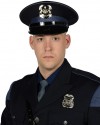
Trooper Timothy O'NeillRest in Peace Bro…We Got The Watch
Michigan State Police, Michigan
End of Watch: Wednesday, September 20, 2017
Age: 28
Tour: 3 years, 8 months
Trooper Timothy O'Neill was killed in a motorcycle crash, in Plainfield Township, at approximately 7:45 am.
He was riding his department motorcycle when he was involved in the crash near the intersection of Wolverine Boulevard NE and Belding Road NE.
Trooper O'Neill had served with the Michigan State Police for three years. He is survived by his mother, father, brother, sister, and fiancee. The crash occurred two weeks before his wedding date.
Nemo me impune lacessit
Day is done, Gone the sun, From the lake, From the hills, From the sky. All is well, Safely rest, God is nigh.
Subscribe to:
Posts (Atom)




